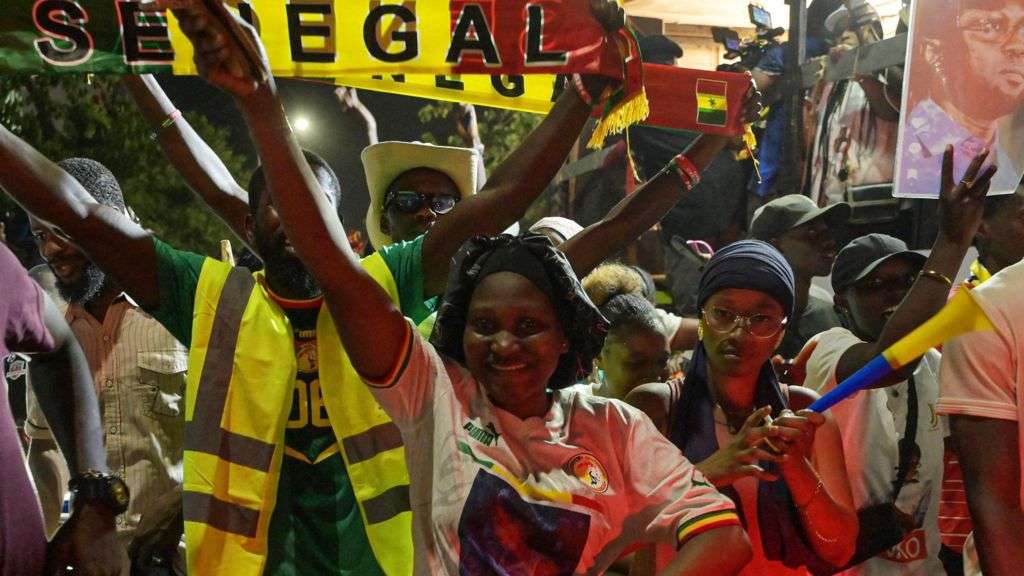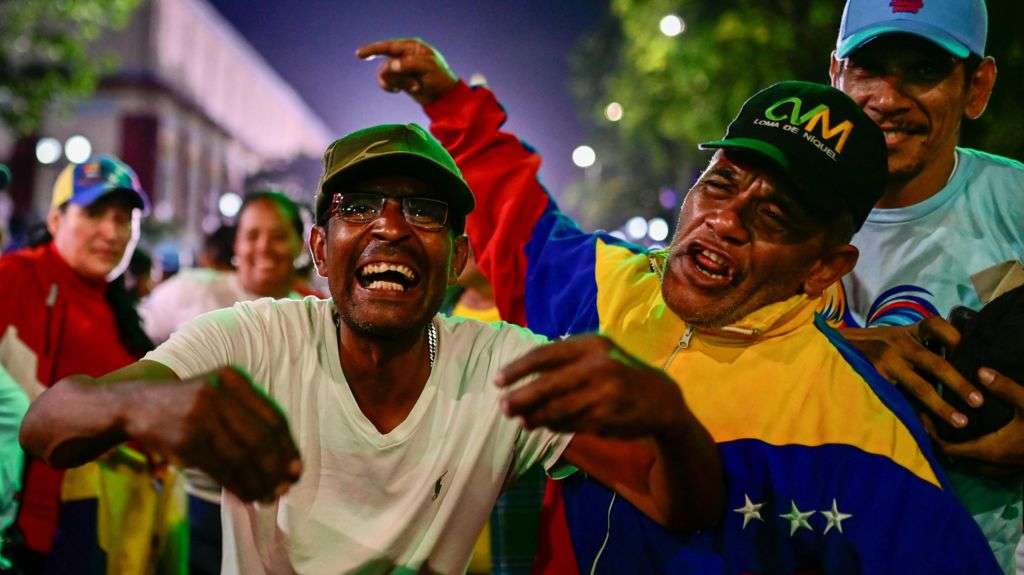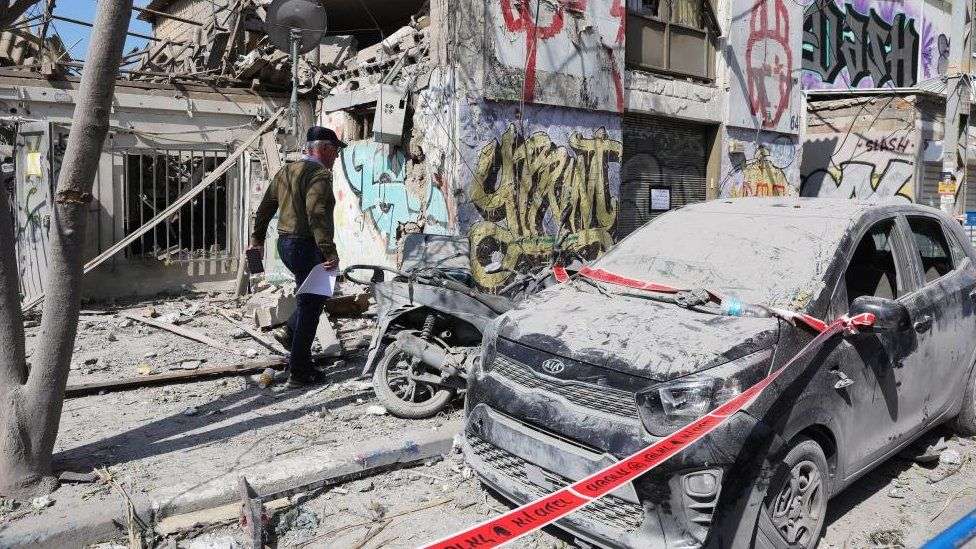They are still finding bodies in the neighbourhoods near Gaza.
Warning: Some readers may find details in this article distressing.
Recovery teams on Wednesday pulled a woman's body from the rubble in Kibbutz Be'eri. She was naked, her feet bound with metal wire.
One of the team said the bodies of more than 20 children had been found nearby, tied together and burned.
Even experienced workers are struggling: deaths like this are enough to break the living.
In Nir Oz, a line of ambulances and black vans processed slowly past the fence as we entered the kibbutz. This is now a place of stillness, the community frozen in the chaos of the attack.
Cats provide the only movement - sliding between bright toys strewn across gardens, the collapsed roofs, the charred gaping skeletons of people's homes.
Overhead, loud explosions regularly fill the silence. Gaza is only three miles away.
Hamas gunmen attacked early in Nir Oz. Survivors say one in four people are dead or missing, including a British man, Danny Darlington.
He was born and raised in Manchester, before recently moving to Germany, and had been visiting family in the kibbutz.
A neighbour identified Danny's body on the morning after the attack, but the family are still waiting for official confirmation that he is dead.
Danny was not meant to be in the kibbutz that morning. His half-brother, Lior Peri, was expecting him back in Tel Aviv the day before, but Danny decided to stay on an extra night.
Lior received a text message on Saturday morning, as the attack unfolded, saying: "S**t, big balagan [chaos] in the kibbutz."
"That's the last I heard from him," Lior told me. "Now I'm trying to help the family in Manchester. They are really in the dark."
Lior's father, Haim Peri, also went missing from Nir Or during the attack.
Haim used to drive sick children from Gaza to Israeli hospitals. Some of the artwork he loved to collect is still standing amid the debris scattered through the house and garden.
Haim and his wife, Osnat, were hiding in their safe room when Hamas gunmen first broke in. The door to the safe room held fast, but the gunmen returned with reinforcements.
This time, Lior says, Haim told his wife to hide behind the sofa in the safe room, then opened the door and gave himself up.
His wife was still hiding when a second group of people burst in - less disciplined, more destructive. They ransacked the house. The door to the safe room was still open, but it was dark inside and they did not bother to look.
Haim has now been formally listed as a hostage.
There is frustration from many families here at the slow pace of information about the dead and missing.
Tent cities lit by floodlights have sprung up at army bases to identify the dead. Plastic-robed medics work to a constant soundtrack of generators, fighter planes and cicadas.
At one centre, we were shown more than a dozen shipping containers, their shelves stacked with body bags of all different sizes.
Staff say the remains of around 1,000 people have passed through here - some in the care of Captain Maayan. Army regulations mean she cannot give her last name.
"I didn't see one body that was shot just once," she told me.
"In each body, I saw abuses and torture, and so many cuts, so many gunshots, so many bruises to the head and to the limbs. It doesn't feel like we're in war and we're seeing casualties. It feels like we're in a massacre, and we're looking at a massacre."
It took nine hours for the army to arrive in Nir Oz. With hundreds of thousands of troops now ranged along the border, Israel is eyeing the next stage of this war - a major offensive operation inside Gaza, aimed at destroying Hamas.
Lior Peri feels out of sync with Israel's current national mood.
"Revenge is a very strong emotion, which a lot of people have now," he says. "But if they will hear us, hear the families, maybe they will reconsider. Maybe they will say: we will have time for revenge later on but before winning the war, let's do whatever we can to get out of this hostage situation."
The families of Israel's hostages and missing are still frozen in the hours after the attack, left without answers, and caught between two different traumas: their nation's and their own.








